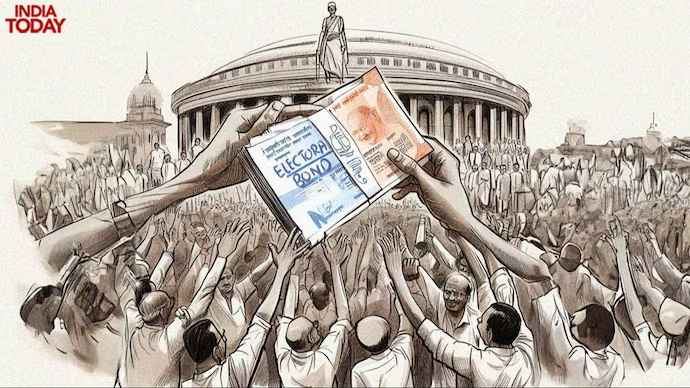In the intricate tapestry of Indian politics, the issue of political funding has long been a subject of scrutiny and debate. Against the backdrop of a vibrant democracy, the mechanisms through which political parties receive financial contributions play a pivotal role in shaping the contours of power and influence. In recent years, the introduction of electoral bonds emerged as a significant innovation aimed at reforming the landscape of political funding. However, the scheme’s inherent complexities and implications have ignited a firestorm of controversy, prompting questions about transparency, accountability, and the integrity of democratic processes.
The Rise of Electoral Bonds
Conceived as a mechanism to streamline political funding and enhance transparency, electoral bonds were introduced by Prime Minister Narendra Modi’s government in 2018 with lofty promises of ushering in a new era of accountability. Under this scheme, donors were afforded the opportunity to purchase bonds in fixed denominations from designated branches of the State Bank of India SBI and subsequently transfer them to political parties, thereby anonymizing the source of contributions. Proponents of electoral bonds touted its potential to curb the influence of illicit money in politics and bolster the democratic fabric of the nation.
The Shadow of Secrecy
However, despite its purported objectives, the electoral bonds scheme quickly became ensnared in a web of controversy and skepticism. Critics contended that the anonymity afforded to donors undermined the principles of transparency and accountability, effectively cloaking the flow of money in a veil of secrecy. Moreover, concerns were raised about the potential for quid pro quo arrangements between political parties and donors, leading to allegations of undue influence and favoritism. As revelations surfaced regarding the disproportionate distribution of bonds and the opacity surrounding donor-party relationships, calls for reform and scrutiny reached a crescendo.
A Trail of Revelations
The recent disclosure of data pertaining to electoral bond transactions has cast a revealing spotlight on the nexus between corporate interests and political patronage. Among the top donors, a lottery company emerged as the largest contributor, underscoring the diverse array of actors involved in the political funding landscape. The staggering amounts funneled into the coffers of political parties, particularly the ruling Bharatiya Janata Party (BJP), have raised eyebrows and renewed concerns about the integrity of the electoral process. With mining conglomerates, telecom giants, and infrastructure behemoths among the prominent donors, questions abound regarding the nexus between corporate influence and political decision-making.
A Call for Transparency
Amidst mounting pressure and public outcry, India’s Supreme Court intervened, deeming the electoral bonds scheme unconstitutional and mandating the disclosure of donation details to the public. The decision to compel the State Bank of India to reveal the unique numbers of electoral bonds represents a significant step towards unraveling the opaque veil shrouding political funding. As the veil of secrecy is lifted and the intricate web of donor-party relationships is laid bare, the imperative of transparency and accountability looms large on the horizon of Indian democracy.
Charting a Path Forward
As India grapples with the fallout of the electoral bonds controversy, the imperative of reforming political funding mechanisms has never been more pressing. The need for comprehensive legislation to regulate campaign finance, enhance transparency, and mitigate the influence of vested interests has become glaringly evident. Moving forward, concerted efforts must be made to restore public trust in the democratic process, safeguard the integrity of electoral institutions, and uphold the principles of accountability and fairness. Only through sustained commitment to reform and oversight can India pave the way towards a more transparent and equitable political landscape.
